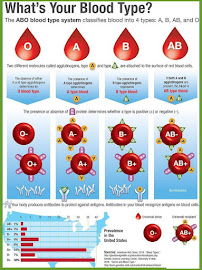Medical and health
Medical and health encompass a broad spectrum of disciplines and practices dedicated to the preservation and improvement of an individual's physical, mental, and emotional well-being. These fields are vital components of society, as they address the prevention, diagnosis, treatment, and management of illnesses, injuries, and overall health concerns.
Medical science, grounded in rigorous research and evidence-based approaches, guides healthcare professionals in delivering quality care. Physicians, nurses, pharmacists, and various specialists work collaboratively to offer personalized treatment plans tailored to each patient's unique needs.
Preventive medicine plays a pivotal role, emphasizing lifestyle choices, vaccinations, screenings, and early detection to ward off diseases. Public health initiatives focus on community-level interventions to promote healthier environments and behaviors, aiming to reduce the burden of illness on a larger scale.
Technology continues to transform healthcare, with innovations like telemedicine, electronic health records, and cutting-edge medical devices enhancing patient care and accessibility. Additionally, holistic approaches, including mental health support, nutrition, and exercise, are increasingly recognized as essential aspects of overall well-being.
In summary, the realms of medical and health sciences collaborate to safeguard and enhance human health, advancing both individual and societal prosperity through research, education, anThis means that health is a resource to support an individual’s function in wider society, rather than an end in itself. A healthful lifestyle provides the means to lead a full life with meaning and purpose.
In 2009, researchers publishing inThe LancetTrusted Source defined health as the ability of a body to adapt to new threats and infirmities.
They base this definition on the idea that the past few decades have seen modern science take significant strides in the awareness of diseases by understanding how they work, discovering new ways to slow or stop them, and acknowledging that an absence of pathology may not be possible.
Types
Mental and physical health are probably the two most frequently discussed types of health.
Spiritual
emotional
and financial health also contribute to overall health. Medical experts have linked these to lower stress levels and improved mental and physical well-being.
People with better financial health, for example, may worry less about finances and have the means to buy fresh food more regularly. Those with good spiritual health may feel a sense of calm and purpose that fuels good mental health.
Health inequities affect all of us differently. Visit our dedicated hub for an in-depth look at social disparities in health and what we can do to correct them.
Factors for good health
The word health refers to a state of complete emotional, mental, and physical well-being. Healthcare exists to help people stay well in these key areas of life.
However, despite this expenditure, people in the U.S. have a lower life expectancy than people in other developed countries. This is due to a variety of factors, including access to healthcare and lifestyle choices.
Good health is central to handling stress and living a longer, more active life. In this article, we explain the meaning of good health, the types of health a person needs to consider, and how to preserve good health.
What is health?
Regular exercise contributes to good health.
In 1948, the World Health Organization (WHO)Trusted Source defined health with a phrase that modern authorities still apply.
“Health is a state of complete physical, mental, and social well-being and not merely the absence of disease or infirmity.”
In 1986, the WHOTrusted Source made further clarifications:
“A resource for everyday life, not the objective of living. Health is a positive concept emphasizing social and personal resources, as well as physical capacities.”


Comments
Post a Comment